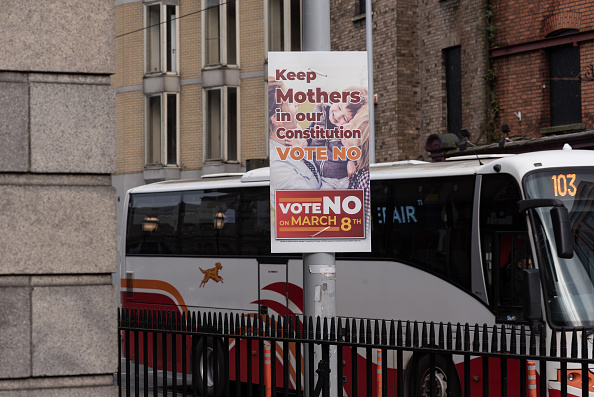Last week at the Bucharest European People’s Party (EPP) Congress Ursula von der Leyen was crowned lead candidate for a second term as President of the European Commision. At the same time, the party adopted a new, hardline approach to illegal immigration, which may put socialists and liberals off backing her.
During recent years, irregular immigration has become perhaps the biggest issue in Europe. This in great part is the explanation for the rise of national-conservative parties. The EPP is the largest party of the establishment alliance that has been ruling the EU for decades that the upstarts are now challenging. So can those who created the problem be trusted with fixing it?
“European people expect from us – and here the European People’s Party will be, in the campaign, crystal clear – you have to lower the numbers of arrivals”, EPP Group President Manfred Weber said in Bucharest. Whether this new stance is more than a pre-election stratagem, remains to be seen.
The proposed scheme to tackle the migrant crisis echoes the UK PM’s plan to send asylum seekers to Rwanda. The EPP manifesto says: “We want to implement the concept of safe third countries. Anyone applying for asylum in the EU could also be transferred to a safe third country and undergo the asylum process there”.
The proposal has already attracted heavy criticism from the EPP’s progressive allies in Brussels. “We will fully comply with our obligations under EU law and international law. The concept of a safe third country is not new. It is already part of EU law,” noted Ursula von der Leyen during a joint press conference with Weber.
Apparently, the EPP wants to win back Right-wing voters. But it may not be that easy. Since 2019 illegal immigration has been left unchecked. Numbers of irregular entries in the EU have soared – and so have incidents of violence and unrest, which have a serious impact on people.
According to Eurostat, in 2022 almost 3.7 million new residence permits were issued in EU Member States – not including the influx from Ukraine – compared to 2.9 million in 2021. There were 875,000 new asylum applications, still not counting Ukrainians, up 52 per cent compared to 2021 and 38 per cent compared to 2019.
According to the International Organisation for Migration (IOM), by November 2023 264,000 irregular entries into the EU were recorded, compared to nearly 190,000 in 2022 and 150,000 in 2021.
Statista numbers are even higher: In 2021 over 200,000 were reported, the most since 2017 when there were over 204,000. And in 2022 they rose to 331,550 – which is more than double the 2019 figures.
People from Africa, the Middle East and Central Asia, most of them young males, are flocking to Europe. Many of them have no intention of being assimilated into the Western liberal culture, while living on welfare and handouts. Islamist violence that targets Christians and Jews has also become an issue, especially after the Gaza war.
As part of the EU establishment, so far the EPP has not only failed to protect European societies from intruders that are not real refugees, but it has also encouraged their influx and harassed governments who do not wish to take in illegals. So its change of policy at the eleventh hour before the European Elections is not convincing.
On the other hand, even though this is surely not a change of heart on behalf of the EPP, the group may be weighing its options ahead of the 2024 ballot, where the Right is expected to emerge stronger than ever. And in this context, its new hardline stance vis a vis illegal migration makes sense.
The EPP “Rwanda policy” could easily be scrapped if the grand coalition continues to be viable after June. If not, it should come in handy in a rapprochement with the conservatives. This is all about about tactics, not principles and ideology.





Europe’s capital needs media to challenge the status quo: That’s why Brussels Signal is launching